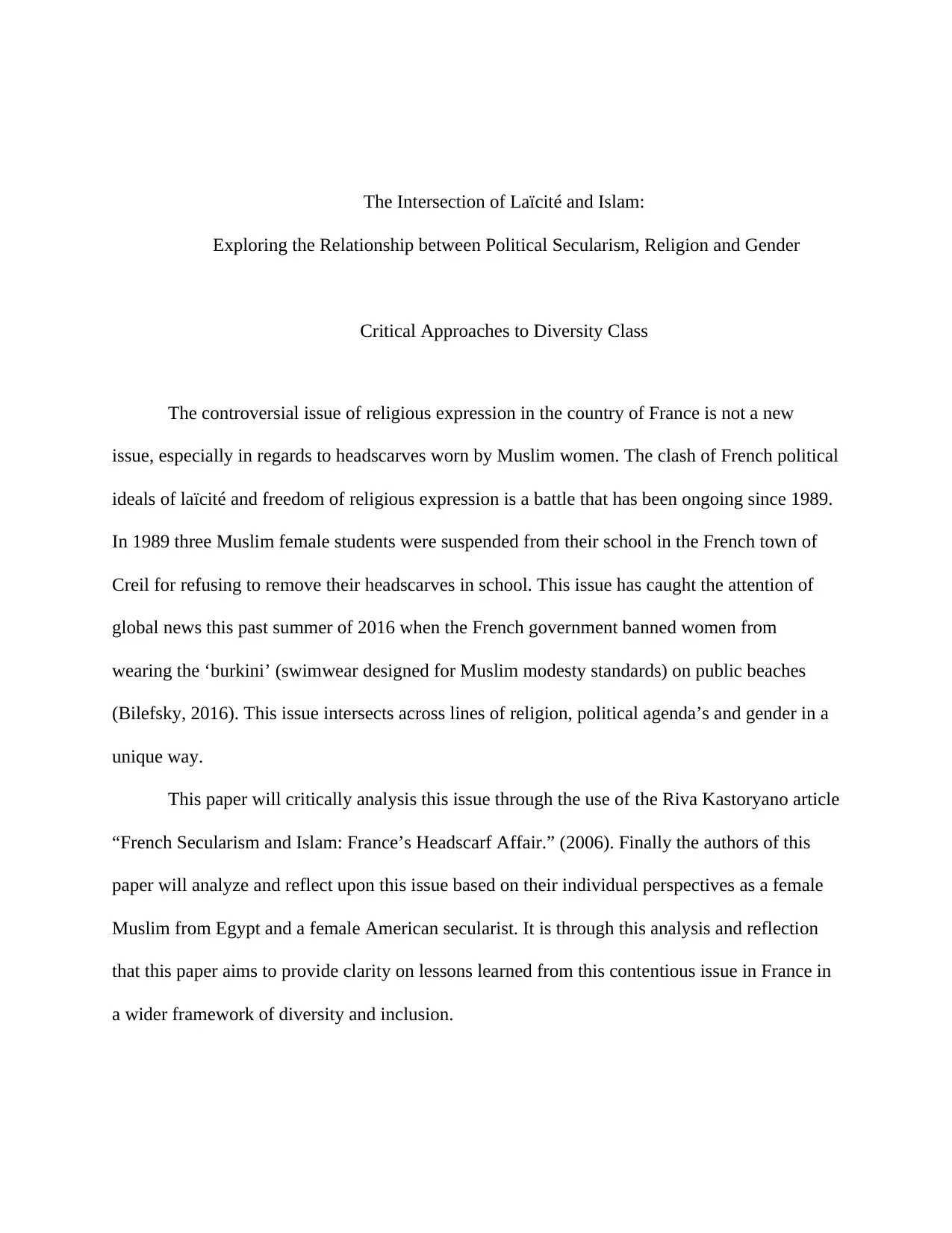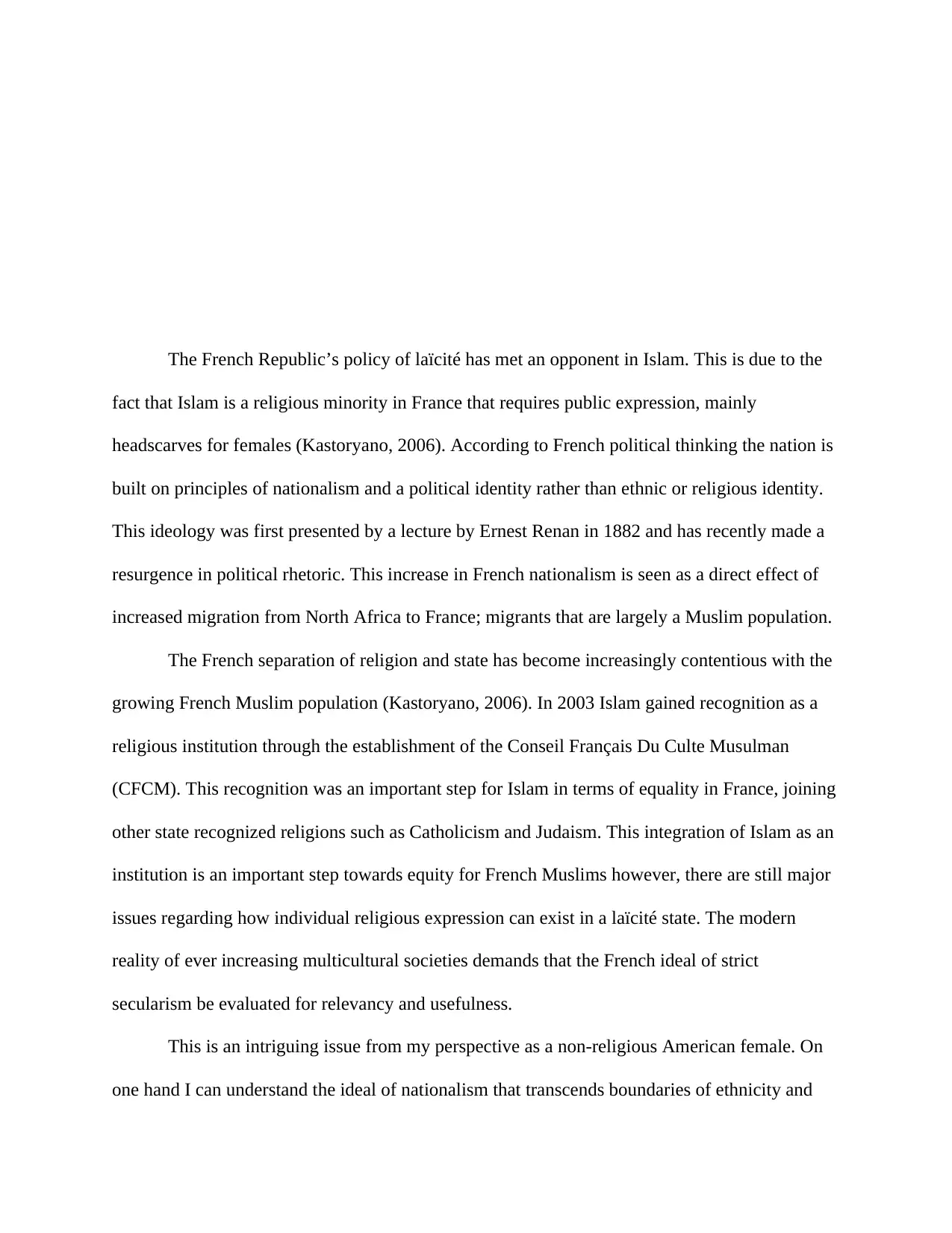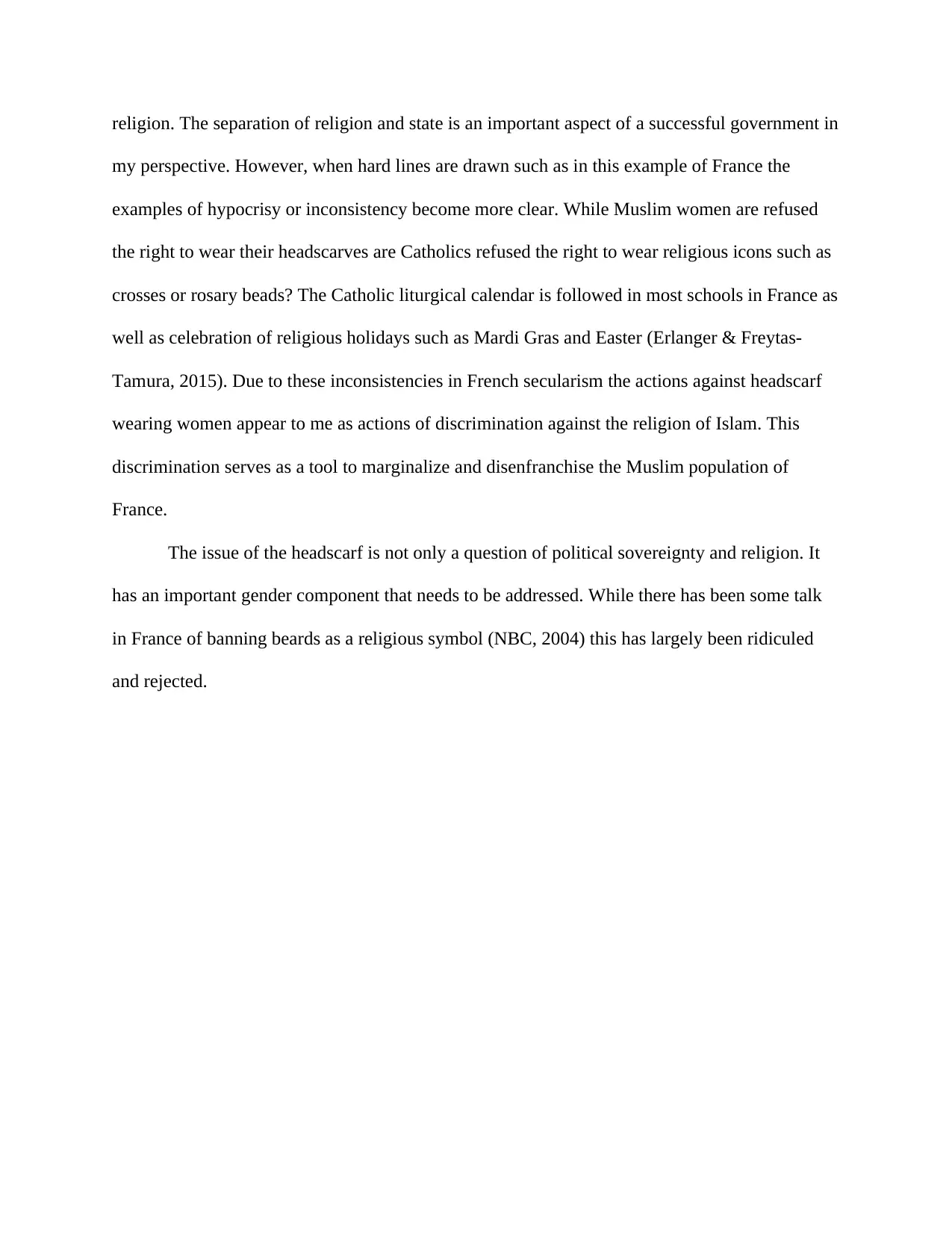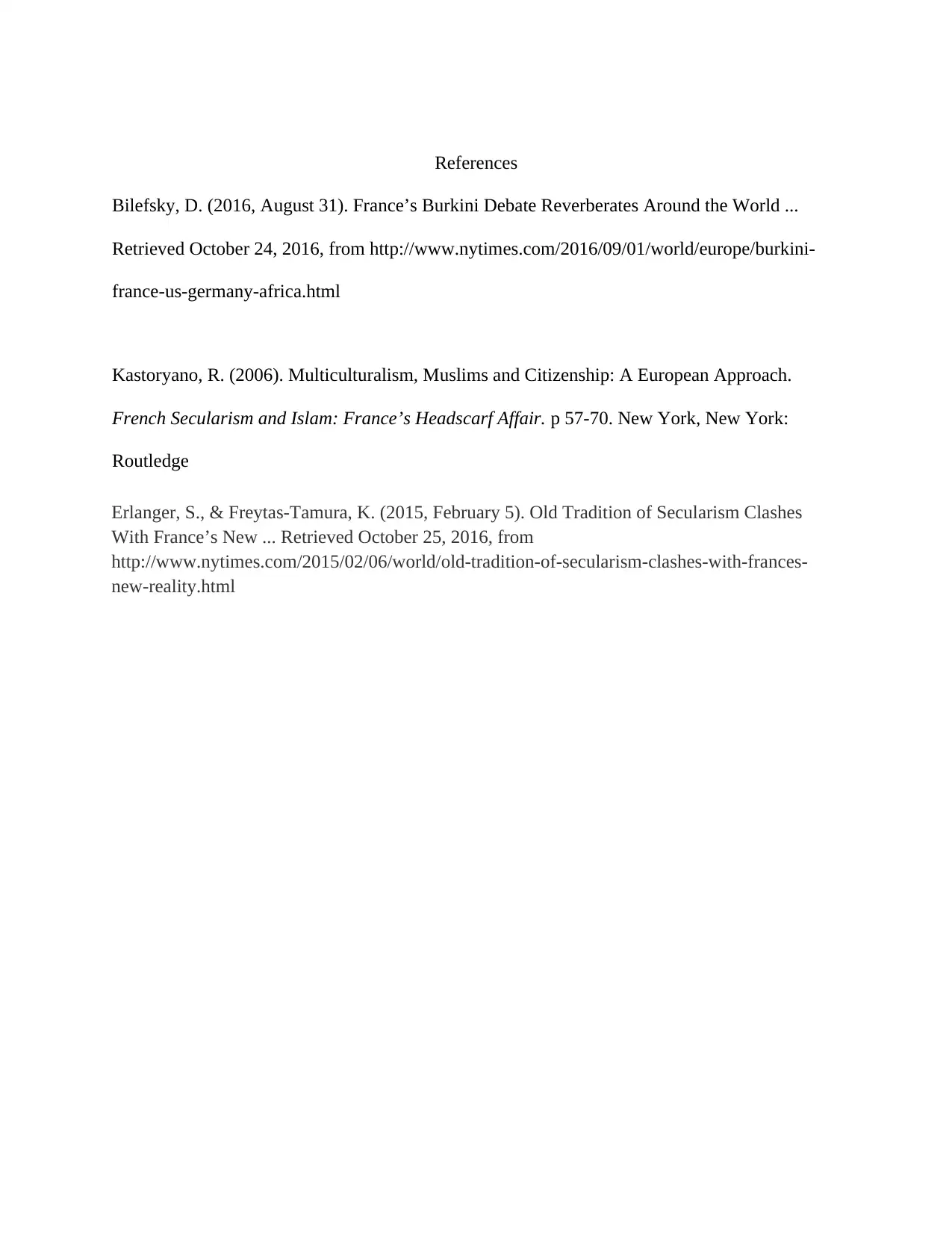Analysis of Laïcité, Islam, and Gender in French Society
VerifiedAdded on 2019/09/30
|4
|838
|353
Essay
AI Summary
This essay critically analyzes the contentious relationship between Laïcité and Islam in France, particularly focusing on the headscarf and burkini debates. It examines the clash between French secular ideals and the religious expression of the Muslim population, drawing on Riva Kastoryano's article "French Secularism and Islam: France’s Headscarf Affair." The paper explores the historical context of Laïcité and its evolution in the face of increasing migration and a growing Muslim population. It highlights the inconsistencies in applying secular principles and the gendered dimensions of the debate. The essay also offers individual perspectives from a Muslim female from Egypt and a non-religious American female, reflecting on the implications for diversity and inclusion within French society. The analysis underscores how the headscarf issue is not solely a matter of political sovereignty and religion but has significant implications for gender equality and the marginalization of the Muslim population.
1 out of 4










![[object Object]](/_next/static/media/star-bottom.7253800d.svg)